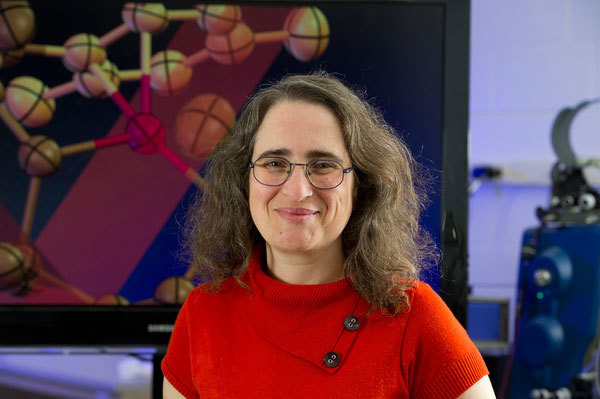
In partnership with the Notre Dame Initiative for Global Development (NDIGD), Professor of Chemistry Marya Lieberman and her research team have received support from VWR , a leading global independent provider of product and service solutions to laboratory and production customers. Through VWR’s longstanding agreement with Notre Dame, VWR will donate $10,000 of lab chemicals and consumables to the Paper Analytical Device (PAD) Project annually for at least the next three years.
Professor Marya Lieberman at the University of Notre Dame, researchers at Purdue University, and Moi Teaching and Referral Hospital are working on an inexpensive, easy-to-use method to detect low quality medicine in Kenya and other countries in East Africa. Samples are collected by covert shoppers, and rapidly screened using a paper analytical device, or PAD. Confirmatory testing by HPLC is being conducted in several locations through the Distributed Pharmaceutical Analysis Laboratory (DPAL).
“We are thrilled to get this donation to increase the capacity of the PAD project for detecting fake pharmaceuticals,” says Dr. Lieberman. “My lab at Notre Dame has three refrigerators full of suspicious samples from the PAD project that need to be assayed. The Distributed Pharmaceutical Analysis Lab (DPAL) matches those suspicious samples with educational institutions that have analytical instrumentation, and hundreds of students at the partner institutions analyze these samples in their analytical lab classes. Now we will be able to develop PADs for screening new types of pharmaceuticals, and provide our DPAL partners with lab supplies from VWR. This support will help us expose fake medicines that are sold in the developing world.”
Within the Keough School of Global Affairs, NDIGD builds relationships with private sector partners to further Notre Dame research and promote human development in developing countries around the globe. Other current partnerships include the Mandela Washington Fellowship for Young African Leaders, supported by IBM and Coca-Cola; and The Connectivity, Electricity, and Education for Entrepreneurship (CE3) Project, supported by Accenture and Lenovo. More information on working with NDIGD can be found here.
The PAD project, started by Dr. Lieberman and her research team in partnership with the University of Notre Dame Eck Institute for Global Health, has received numerous research grants, including most recently a USAID Development Innovation Ventures (DIV) grant.
Contact: Joya Helmuth, NDIGD Outreach and Training Associate Director, jhelmuth@nd.edu
—
The University of Notre Dame Initiative for Global Development promotes human development and dignity among people worldwide through applied innovations, impact evaluation, education, and training that helps build just and equitable societies. It is an integral part of Notre Dame’s new Keough School of Global Affairs.
VWR (NASDAQ: VWR), headquartered in Radnor, Pennsylvania, is the leading, global, independent provider of product and service solutions to laboratory and production customers. With sales in excess of $4.3 billion in 2015, VWR enables science for customers in the pharmaceutical, biotechnology, industrial, education, government and healthcare industries. With more than 160 years of experience, VWR has cultivated a value proposition delivering product choice, operational excellence and differentiated services to improve our customers’ productivity from research to production. VWR’s differentiated services provide innovative, flexible and customized solutions from scientific research services to custom-manufactured chemical blends. Their dedicated team of more than 9,300 associates is focused on supporting scientists, medical professionals and production engineers to achieve their goals.
Originally published by Joya Helmuth at ndigd.nd.edu on June 20, 2016.
Originally published by Joya Helmuth at ndigd.nd.edu on June 20, 2016.
Originally published by Joya Helmuth at research.nd.edu on June 21, 2016.
